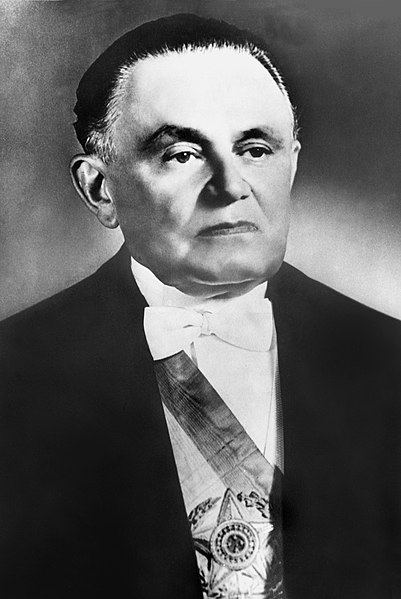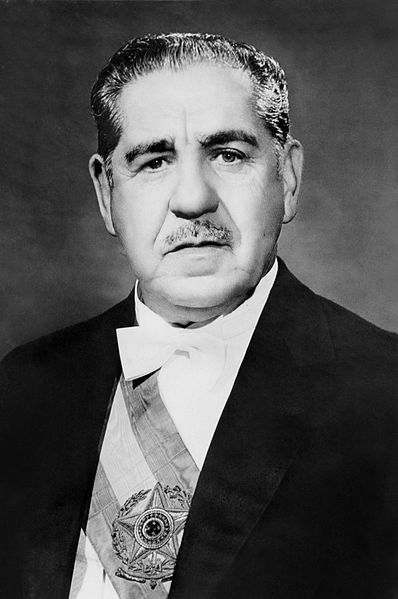Catholic Church in Brazil
The Brazilian Catholic Church, or Catholic Church in Brazil, is part of the worldwide Catholic Church, under the spiritual leadership of the Pope in Rome, and the influential National Conference of Bishops of Brazil, composed of over 400 primary and auxiliary bishops and archbishops. There are over 250 dioceses and other territorial jurisdictions in Brazil. The primate of Brazil is Dom Sérgio da Rocha.
The Basilica of the National Shrine of Our Lady of Aparecida in Aparecida It is the second largest church in the world, after St. Peter's Basilica in Vatican City.
The Final Mass of the World Youth Day 2013, at Copacabana Beach. Pope Francis was the third Pope to visit Brazil.
Christ the Redeemer statue in Brazil
Military dictatorship in Brazil
The military dictatorship in Brazil, occasionally referred to as the Fifth Brazilian Republic, was established on 1 April 1964, after a coup d'état by the Brazilian Armed Forces, with support from the United States government, against president João Goulart. The Brazilian dictatorship lasted for 21 years, until 15 March 1985. The coup was planned and executed by the most senior commanders of the Brazilian Army and received the support of almost all high-ranking members of the military, along with conservative sectors in society, like the Catholic Church and anti-communist civilian movements among the Brazilian middle and upper classes. The military regime, particularly after the Institutional Act No. 5 in 1968, practiced extensive censorship and committed human rights abuses, including institutionalized torture and extrajudicial killings and forced disappearances. Despite initial pledges to the contrary, the military regime enacted a new, restrictive Constitution in 1967, and stifled freedom of speech and political opposition. The regime adopted nationalism, economic development, and anti-communism as its guidelines.

João Goulart was the left-leaning president ousted by the Armed Forces
U.S. President John F. Kennedy (left) and President Goulart during a review of troops on 3 April 1962. Kennedy mulled possible military intervention in Brazil
Marshal Castelo Branco
Marshal Costa e Silva







